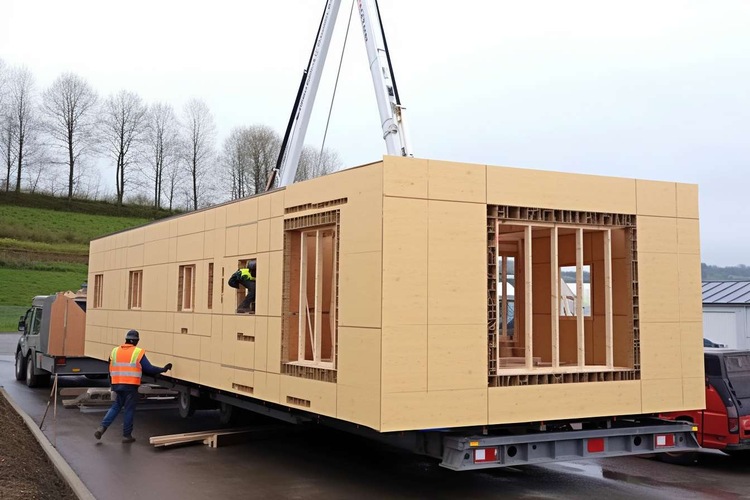Understanding Modular Homes: Construction, Benefits, and Living Options
Modular homes represent a growing segment of the housing market, offering factory-built construction with site assembly. These prefabricated structures combine quality control with customization options, providing homeowners with an alternative to traditional stick-built construction. Understanding the construction process, benefits, and suitability for different living environments helps potential buyers make informed decisions about this housing option.

Modular homes have gained significant attention in recent years as an innovative housing solution that challenges traditional construction methods. These factory-built structures are constructed in controlled environments before being transported and assembled on permanent foundations. Unlike mobile homes, modular homes must meet the same building codes as site-built houses, making them a legitimate alternative for homeowners seeking quality construction with potential time and cost savings.
What Are the Key Benefits of Living in a Modular Home?
Modular construction offers several advantages that appeal to modern homeowners. The controlled factory environment ensures consistent quality control, as construction occurs indoors without weather delays or material exposure to elements. This process typically reduces construction time by 30-50% compared to traditional building methods.
Customization options rival those of stick-built homes, with manufacturers offering various floor plans, finishes, and architectural styles. Quality construction standards often exceed site-built homes due to the need for modules to withstand transportation. Additionally, the factory setting allows for bulk purchasing of materials, potentially reducing overall costs.
The inspection process occurs at multiple stages during factory construction, ensuring compliance with building codes before modules leave the facility. This systematic approach often results in fewer construction defects and warranty issues compared to traditional construction methods.
How Do Energy Efficiency Features Work in Modular Homes?
Modern modular homes incorporate advanced energy efficiency features that often surpass traditional construction standards. Factory construction allows for precise installation of insulation systems, creating consistent thermal barriers throughout the structure. Many manufacturers use structural insulated panels (SIPs) or advanced framing techniques that minimize thermal bridging.
High-performance windows and doors are standard in many modular homes, featuring low-E coatings and multi-pane construction for superior insulation. HVAC systems are often designed specifically for the home’s layout, ensuring optimal efficiency and air distribution.
Some manufacturers offer Energy Star certification or net-zero energy packages, incorporating solar panels, high-efficiency appliances, and smart home technology. The controlled construction environment allows for better sealing of the building envelope, reducing air leakage that commonly occurs in site-built construction.
What Are Common Misconceptions About Modular Homes?
Several misconceptions persist about modular construction that can influence buyer decisions. Many people confuse modular homes with mobile homes or manufactured housing, though modular homes are built to the same codes as traditional houses and placed on permanent foundations.
Another common belief is that modular homes have limited design options or appear generic. Modern manufacturers offer extensive customization, including multi-story designs, complex rooflines, and luxury finishes that rival custom-built homes.
Financing misconceptions also exist, with some believing modular homes are harder to finance or have lower resale values. In reality, modular homes typically qualify for conventional mortgages and appreciate similarly to site-built homes when properly constructed and sited.
The perception of lower quality construction is often unfounded, as factory construction typically provides better quality control than site building. Many modular homes exceed local building codes due to transportation requirements and manufacturer standards.
Are Modular Homes Suitable for Rural and Urban Living?
Modular homes adapt well to both rural and urban environments, though each setting presents unique considerations. Rural properties often provide more flexibility for modular home placement, with fewer zoning restrictions and easier access for delivery trucks.
Rural modular homes can incorporate features like well water systems, septic systems, and alternative energy sources. The controlled construction environment is particularly beneficial in rural areas where weather conditions might delay traditional construction for extended periods.
Urban modular construction faces different challenges, including delivery logistics in dense areas and stricter zoning regulations. However, urban infill projects increasingly utilize modular construction for its speed and reduced neighborhood disruption.
Some urban areas have embraced modular construction for affordable housing initiatives, taking advantage of faster construction times and cost efficiencies. Multi-story modular buildings are becoming more common in urban settings, demonstrating the versatility of this construction method.
| Provider | Home Types | Price Range (Est.) |
|---|---|---|
| Clayton Homes | Single/Multi-section | $60,000-$200,000 |
| Champion Home Builders | Custom modular | $80,000-$300,000 |
| Westchester Modular | Luxury modular | $150,000-$500,000 |
| Ritz-Craft | Traditional/Contemporary | $70,000-$250,000 |
Prices, rates, or cost estimates mentioned in this article are based on the latest available information but may change over time. Independent research is advised before making financial decisions.
Modular construction continues evolving as building technology advances and consumer preferences shift toward sustainable, efficient housing solutions. The combination of quality construction, customization options, and time savings makes modular homes a viable option for many homeowners. Whether considering rural or urban placement, understanding the benefits and addressing common misconceptions helps buyers make informed decisions about this growing housing alternative. As the industry matures, modular homes increasingly demonstrate their ability to meet diverse housing needs while maintaining construction quality and design flexibility.




